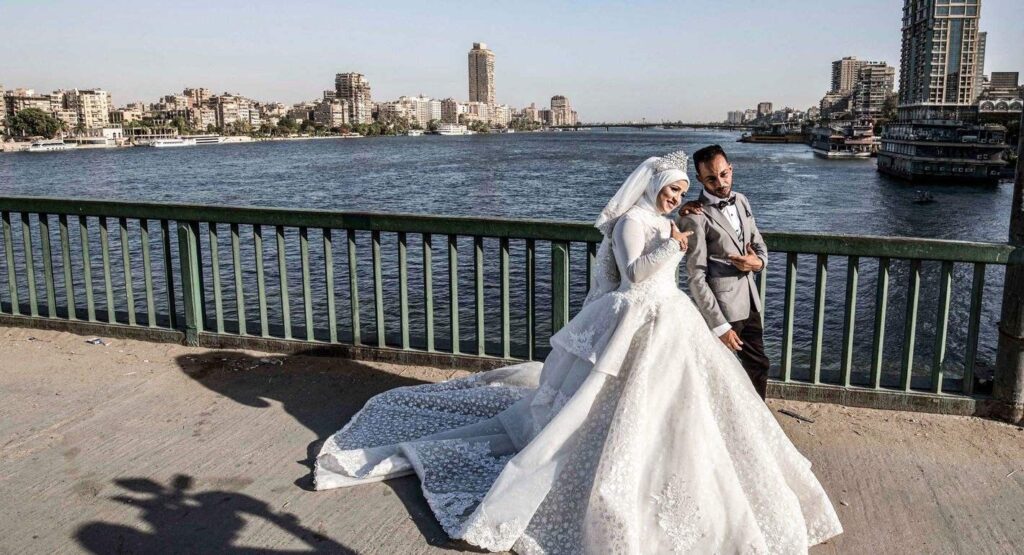

In Egypt, women are often the lead plaintiffs in many status cases, but they face many obstacles in seeking justice. Egypt’s Personal Status Law (Law No. 1 of 2000), which regulates marriage, divorce, child custody, and various alimony arrangements, has changed social and economic realities, inadvertently giving women more power within the home and over their children. However, anti-women grassroots movements within society see these changes as a reduction in male privilege.
The majority of status cases brought by women concern financial compensation after divorce, such as alimony and child support. Despite the clear financial obligations in Islamic law, women’s opponents argue that including specific provisions on family-related expenses in personal status laws is merely a way for the authorities to intervene on women’s behalf. They argue that such provisions make it easier to seize men’s savings, especially in cases of divorce, and limit men’s power to determine affordable child support payments, which are mandatory until the child reaches adulthood at age 21 and increase with inflation. Moreover, divorced fathers’ groups see post-divorce financial obligations as an extension of what they see as women’s infringement on men’s employment opportunities.
Male defendants in personal liability cases see the law as a threat because they could be jailed if they don’t comply with the ruling, make payments, or disclose their income. But in reality, court rulings against women for alimony, child support, and other financial rights often lack effective enforcement mechanisms. Given the potential opposition from women’s opponents and their allies, it may be difficult to pass laws to strengthen enforcement of these cases.
However, there are some bright spots in Egyptian women’s quest for economic justice. First, there is a growing demand in Egyptian society for marital property division to be based on the principle of “toil and effort.” This is the idea that a divorced or widowed woman is entitled to her fair share of her spouse’s accumulated wealth if she contributed to it. There is growing demand from feminist forces to enshrine this principle in law, which could ease the economic burden of divorce on women. The Grand Imam of Al-Azhar also maintains that the principle is based on Islamic jurisprudence and is a safeguard to guarantee women’s rights.
Another major opportunity for women comes from the Egyptian government’s efforts to crack down on the informal sector and integrate its workers into the formal economy, aiming to increase state tax revenues. If this economic initiative is successful, it will unintentionally strengthen the ability of human rights courts to assess assets more accurately, preventing male litigants from using the informal economy to evade financial compensation to their spouses. The expected fiscal policy could help ease the economic burden on female breadwinners, compensate for inefficient provisions in existing laws, and narrow the economic gender gap.
Due to poor enforcement mechanisms, women are often forced to work to support their families. Adding to this burden, according to both Egyptian and Islamic law, women automatically have custody of children and are responsible for their upbringing. Following requests for court intervention, amendments to the Egyptian Personal Status Law and the Egyptian Children’s Law in 2000 gave mothers the opportunity to participate in decisions regarding their children’s education together with fathers. At the same time, there are increasing cases of fathers giving up full educational decision-making power to their ex-partners in exchange for giving up financial support and compensation.
With maternal responsibilities growing, whether intentional or unintentional, for better or worse, coupled with rising divorce rates and a trend towards judicial resolution of marital disputes, it is not unreasonable to think that Egyptian society may become more matriarchal in the future.
Nouran Said Ahmed is an Egyptian writer interested in Egyptian law, religion, and the politics of sport. She is a researcher at the Henry Luce Foundation’s International Politics of Moderate Islam project. Follow her on X. translation:.
Tara Thomas Agency stands at the forefront of the entertainment industry, with years of experience dedicated to nurturing the most exceptional talents and successful acts.